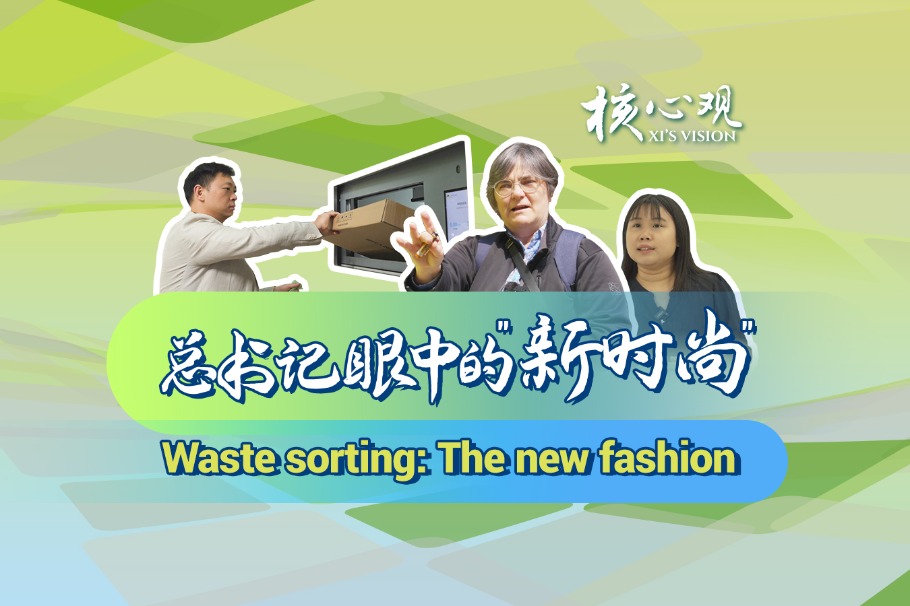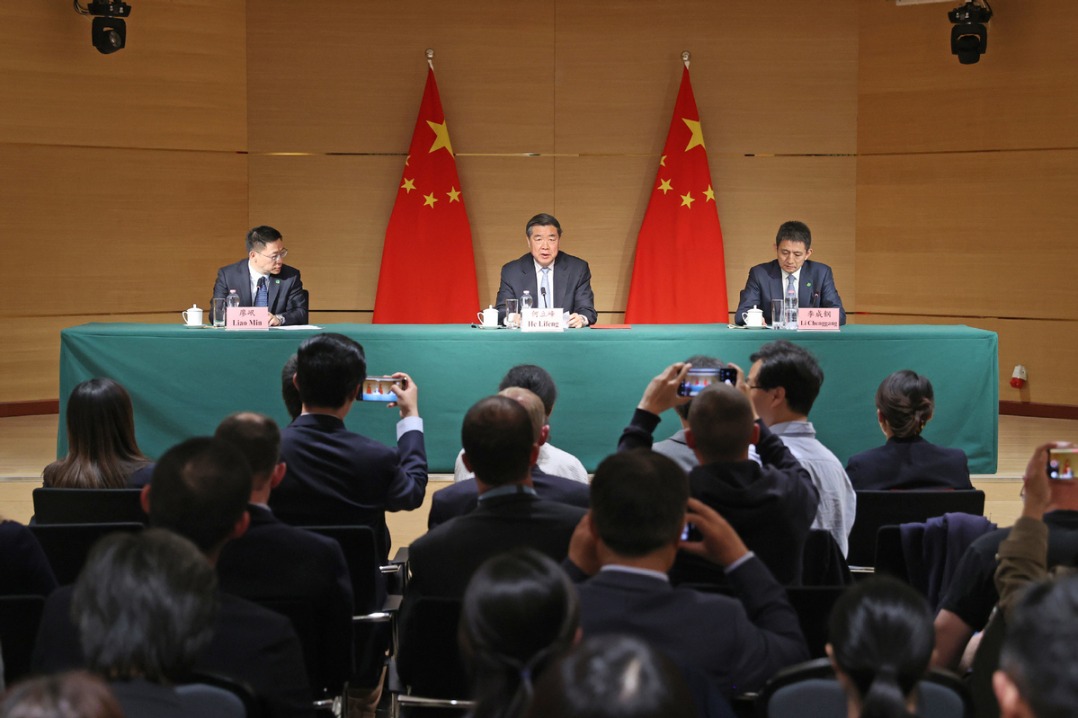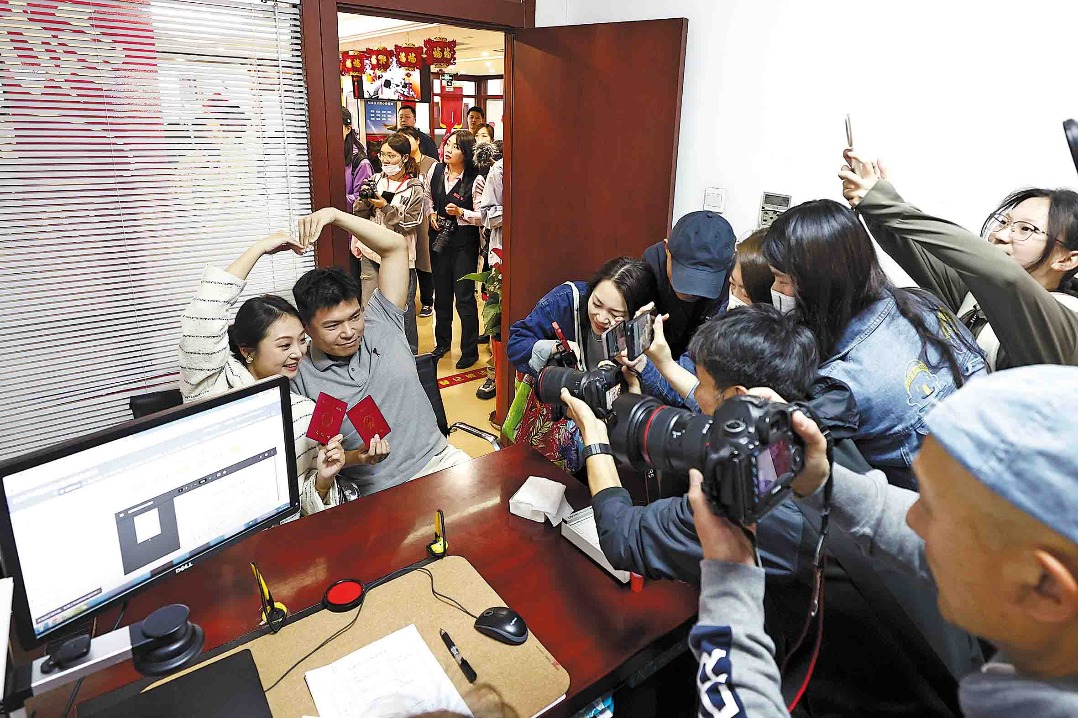Ride-hailing giant Didi introduces new measures to tackle odor problem
By Luo Wangshu | China Daily | Updated: 2024-12-25 09:35

Responding to mounting complaints about unpleasant odors in its ride-hailing vehicles, Didi Chuxing, China's leading ride-hailing platform, announced a nationwide initiative to address the issue of "odor cars."
The move comes amid growing frustration from passengers over lingering smells described as "stuffy,""musty," or otherwise unpleasant, particularly during colder months when air circulation is often limited.
The issue gained traction on social media, where riders shared uncomfortable experiences with vehicles smelling smoke, food or mold.
In an official statement released on Monday, Didi acknowledged the issue and apologized for the inconvenience caused to passengers.
The company outlined several measures to improve vehicle cleanliness and air quality, including the introduction of a "blacklist" feature that allows passengers to avoid vehicles with poor air quality for up to a year.
"We sincerely apologize to our passengers for not providing a fresher travel environment," Didi said in the statement.
"We understand how important vehicle cleanliness is and are taking active steps to improve this situation."
As part of its new initiative, Didi implemented several measures to tackle the odor problem.
These included advising drivers to maintain higher cleanliness standards, recommending they open windows between rides to promote air circulation, and introducing a rewards and penalty system.
Drivers who receive negative feedback about air quality face penalties, including temporary suspension until they complete cleaning and hygiene training.
Drivers largely supported Didi's initiative. Wu Xuqian, a ride-hailing driver in Beijing, explained that maintaining a clean and odor-free car was crucial for passenger comfort and well-being.
"I spend 12 hours a day in my car, and I want to be comfortable," Wu said. "If the car smells good, I get better reviews and more points from the company, which means more rides and better earnings."
Wu also emphasized the importance of ventilation, especially in winter when air circulation is often limited. "I always open the windows between rides, even in winter. It's important to keep the air fresh for passengers and myself," he added.
Passengers also shared positive feedback about the changes. A passenger surnamed Zhang, who frequently travels with his 5-year-old son, recalled a recent ride in which the car had a pleasant scent.
"My child is very sensitive to smells, and once we got into a car from the airport, it had a fragrance card. It smelled so fresh, and the ride was much more comfortable," Zhang said. "When the car smells good, I always leave a positive review."
Didi's actions reflect a broader trend across the ride-hailing industry. As consumer expectations rise, ride-hailing platforms are under increasing pressure to not only offer convenience and cost-effectiveness but also to improve service quality, especially in areas like hygiene and comfort.
According to the 2022 Ride-Hailing Vehicle Air Quality Report, air quality and vehicle cleanliness have become key factors for passengers.
The report, released in August 2022 by ride-hailing service provider Cao Cao Mobility and financial media outlets Yicai and DT Finance, found that 95.4 percent of respondents paid attention to air quality in ride-hailing cars. More than one-third of participants said they were "very concerned" about it, with the smell inside the car ranking as the top factor influencing the passenger experience, surpassing concerns about "driver attitude", "car cleanliness" and "driving skills".
The report also revealed that more than 70 percent of passengers had experienced physical discomfort due to poor air quality, including shortness of breath, dizziness and motion sickness. These findings underscored the extent of the problem within the industry, as poor air quality can detract from the overall customer experience.
The increased focus on air quality and cleanliness signals a significant shift in the ride-hailing market, where service quality is becoming as important as price and convenience. With competition among companies intensifying, platforms are realizing that passengers are increasingly vocal about their expectations for hygiene and comfort.
As service quality becomes a key differentiator in a crowded market, ride-hailing platforms are expected to continue improving cleanliness and air quality. These efforts are part of a broader industry trend to meet the evolving needs of passengers while maintaining a competitive edge.
























